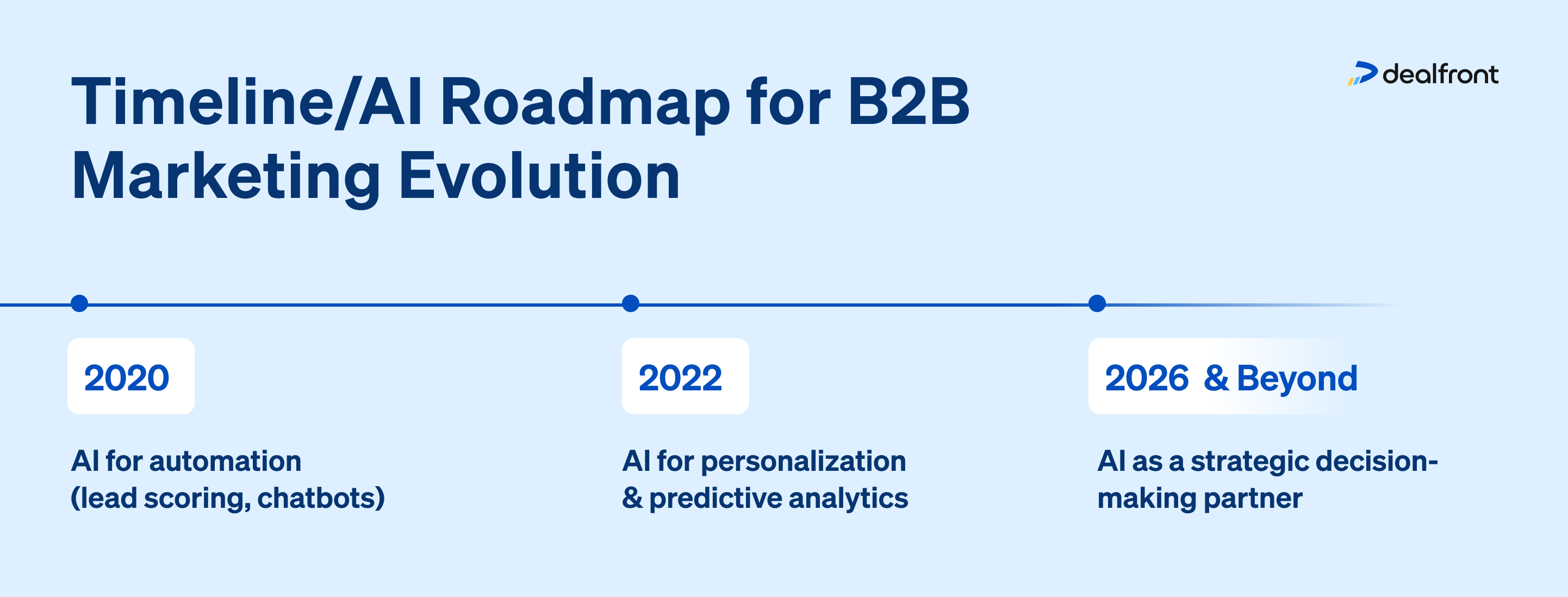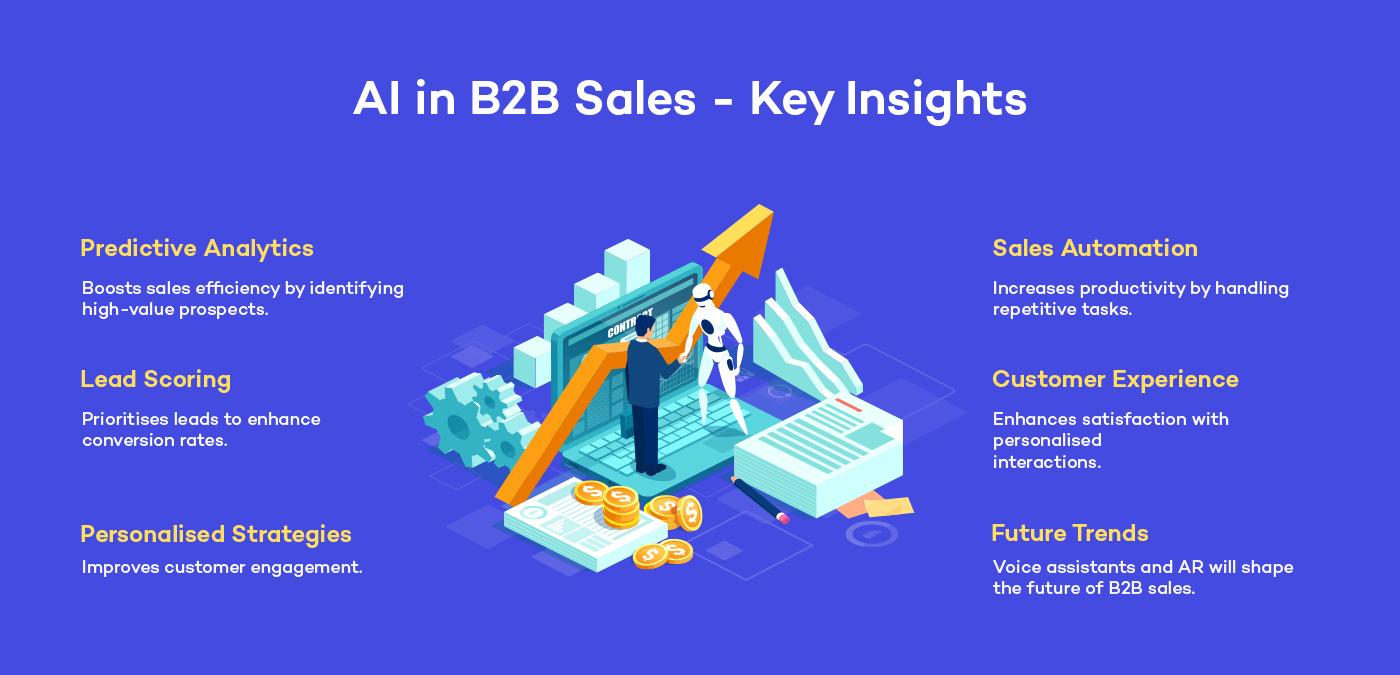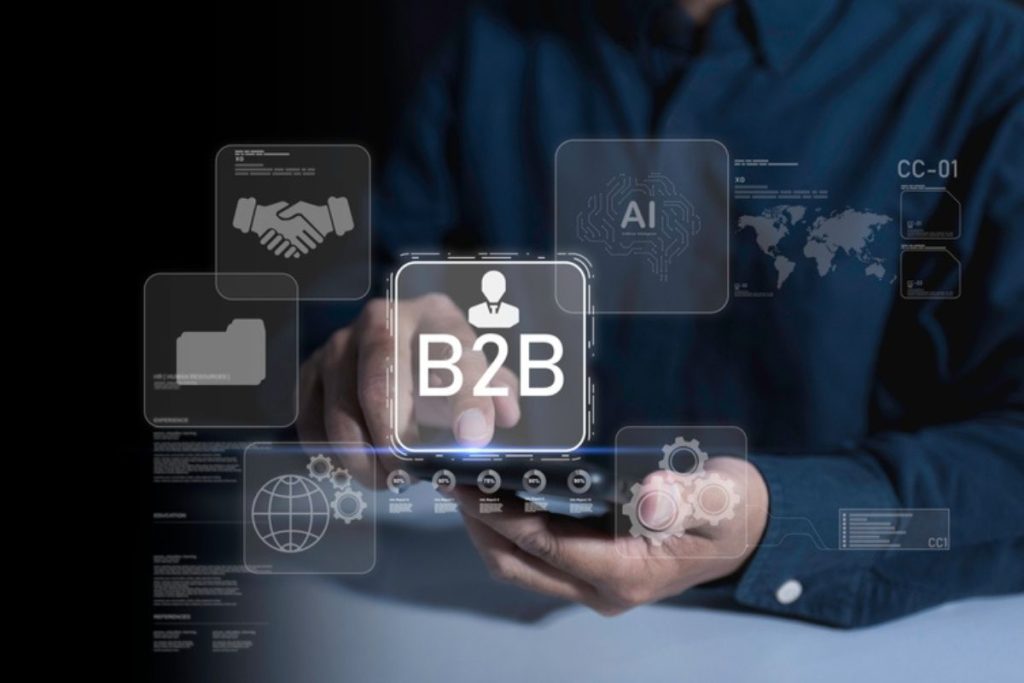How AI Automation For B2B boosts customer experience in B2B operations
Wiki Article
Open Performance and Development With AI Automation for B2B Business
AI automation is transforming the landscape for B2B firms. It reduces and streamlines procedures dependence on human intervention. This change enables companies to make quicker, data-driven decisions. As companies check out which processes to automate, they have to likewise consider the right devices to carry out. Obstacles continue to be in taking on AI innovation. The ramifications of these changes could shape the future of numerous companies in means yet to be totally comprehendedUnderstanding AI Automation in the B2B Context
As businesses significantly look for efficiency, recognizing AI automation in the B2B context ends up being vital. AI automation involves using sophisticated technologies to simplify procedures, reduce human treatment, and improve decision-making procedures. In the B2B landscape, this can materialize in various kinds, such as automating client service interactions, taking care of supply chain logistics, or maximizing advertising and marketing campaigns. Firms can take advantage of AI to analyze substantial datasets swiftly, enabling them to determine trends and understandings that inform calculated choices. In addition, AI systems can integrate flawlessly with existing innovations, giving a cohesive system for handling organization features. This understanding prepares for organizations to discover how AI can transform their procedures, enhance performance, and ultimately foster sustainable development in an affordable market.Key Benefits of Carrying Out AI Automation

Recognizing Procedures Appropriate for Automation

Choosing the Right AI Tools for Your Service
When B2B firms consider automating their procedures, selecting the best AI devices becomes crucial for attaining desired results. Firms should start by reviewing their unique requirements and objectives, making certain alignment with service objectives (Growth Systems For B2B). Evaluating the integration, versatility, and scalability capacities of potential tools is important, as these factors figure out lasting effectiveness. Organizations must additionally consider user-friendliness and the level of assistance given by vendors, as these aspects can influence successful implementation. Furthermore, assessing customer testimonials and case research studies can give insights into just how particular AI services execute in real-world scenarios. By thoroughly picking AI tools that fit their operational needs, B2B business can boost efficiency and drive development while reducing possible disruptionsGetting Over Challenges in AI Adoption
B2B business typically run into substantial challenges in adopting AI innovations, specifically concerns associated with information quality and resistance to alter administration. Poor information high quality can prevent the performance of AI systems, while staff member reluctance to embrace new procedures can delay execution initiatives - Growth Systems For B2B. Resolving these challenges is essential for successful AI integration and optimizing its possible benefitsData Top Quality Issues
Assuring high data quality is essential for the effective fostering of AI technologies in business-to-business environments. Imprecise, insufficient, or outdated information can badly impede AI initiatives, bring about wrong insights and poor decision-making. Firms usually deal with challenges such as information silos, variances across different resources, and an absence of standard information styles. To get over these problems, companies have to spend in data cleaning, combination, and governance processes. Applying durable data management methods ensures that the details fed right into AI systems is trusted and pertinent. Cultivating a culture of information top quality recognition among staff members can enhance information precision over time. By resolving information quality problems, B2B firms can launch the full potential of AI automation, driving effectiveness and growth.Adjustment Monitoring Resistance

Gauging the Impact of AI Automation
Gauging the effect of AI automation in B2B firms requires a clear understanding of vital efficiency signs (KPIs) that align with service goals. Efficient information analysis techniques are essential for interpreting the results, while robust ROI analysis approaches assist identify the financial benefits of automation initiatives. With each other, these elements give a comprehensive structure for evaluating AI's contributions to organizational success.Key Performance Indicators
Secret efficiency signs (KPIs) work as crucial devices for B2B companies to assess the performance of AI automation efforts. By developing clear metrics, organizations can determine enhancements in operational performance, expense reduction, and revenue development straight attributable to automation. Usual KPIs consist of cycle time reduction, mistake rates, customer complete satisfaction scores, and employee efficiency over at this website degrees. These signs give insights into how AI systems are enhancing processes and enhancing overall efficiency. Furthermore, tracking KPIs allows firms to recognize locations for further renovation and to straighten AI automation initiatives with tactical company objectives. Ultimately, a well-defined structure of KPIs guarantees that B2B business can quantitatively assess the influence of AI automation on their operations and drive constant development.Data Analysis Techniques
Effective information evaluation methods play a vital function in reviewing the influence of AI automation within B2B companies. By making use of analytical techniques, companies can determine fads and patterns in functional data, allowing them to assess the performance gets achieved with automation. Strategies such as regression evaluation and time series forecasting supply understandings into exactly how AI-driven processes affect efficiency and decision-making. Additionally, information visualization tools can efficiently communicate searchings for to stakeholders, facilitating notified critical choices. Device knowing algorithms can further enhance evaluation by predicting future outcomes based on historical data, offering workable understandings. Inevitably, these techniques enable B2B business to gauge success and enhance their AI automation efforts, ensuring placement with company goals and enhancing general efficiency.ROI Evaluation Techniques
Reviewing the return on investment (ROI) of AI automation is necessary for B2B companies seeking to comprehend the economic ramifications of their technological initiatives. Business can use various ROI assessment methods to gauge the performance of AI implementations - Growth Systems For B2B. One efficient strategy entails determining cost financial savings by comparing operational costs before and after automation (B2B Growth Consulting). In addition, measuring productivity enhancements with key efficiency signs (KPIs) assists quantify the benefits of AI. Consumer fulfillment metrics can additionally provide insights right into the effect of automation on service quality. To guarantee a complete analysis, firms should think about both direct monetary returns and intangible advantages, such as improved decision-making capabilities and competitive advantage. This diverse examination allows B2B firms to make informed decisions regarding future financial investments in AI technologyFuture Patterns in AI Automation for B2B Business
What innovations exist in advance for AI automation in B2B companies? Arising fads show a substantial shift towards enhanced data analytics abilities, enabling services to make more informed choices. Predictive analytics will certainly come to be significantly important, allowing firms to prepare for market changes and customer needs. Additionally, the integration of AI with Internet of Things (IoT) technology is anticipated to streamline operations by giving real-time insights and automation of procedures. Business will certainly also focus on boosting customer experiences via customized marketing driven by AI algorithms. Innovations in natural language processing will facilitate much better communication between services and customers. As these trends develop, B2B firms should adjust to take advantage of AI automation properly, making sure continual growth and competitive advantage.Often Asked Questions
What Industries Advantage the Many From AI Automation in B2B?
Production, money, healthcare, and logistics markets benefit the most from AI automation in B2B. These fields take advantage of AI to enhance procedures, improve decision-making, and enhance general functional performance, driving considerable growth and development.Just How Does AI Automation Impact Worker Roles and Responsibilities?
AI automation improves staff member functions and duties by enhancing repeated tasks, enabling employees to concentrate on tactical initiatives. This shift cultivates skill advancement, boosts efficiency, and encourages partnership, eventually driving business growth and development.What Prevail Misconceptions Regarding AI Automation in B2B?
Common misconceptions regarding AI automation in B2B consist of concerns of work loss, beliefs that AI can fully change human judgment, and ignoring the value of collaboration in between AI systems and staff members for perfect outcomes.Exactly How Can Services Make Sure Data Personal Privacy With AI Automation?
Services can guarantee information privacy with AI automation by carrying out robust encryption procedures, sticking to regulatory compliance, performing regular audits, and training staff members on data dealing with practices to mitigate threats and secure sensitive info.What Are the Costs Related To Carrying Out AI Automation?
The prices connected with applying AI automation consist of software procurement, framework upgrades, training employees, ongoing upkeep, and potential downtime throughout integration. Additionally, firms may incur costs associated to information protection and compliance procedures.Measuring the influence of AI automation in B2B firms calls for a clear understanding of key efficiency indicators (KPIs) that align with organization purposes. Trick efficiency indications (KPIs) serve as essential devices for B2B companies to assess the effectiveness of AI automation initiatives. Reliable information analysis methods play an essential duty in evaluating the effect of AI automation within B2B business. Assessing the return on investment (ROI) of AI automation is vital for B2B firms seeking to understand the monetary ramifications of their technological efforts. What technologies lie in advance for AI automation in B2B companies?
Report this wiki page